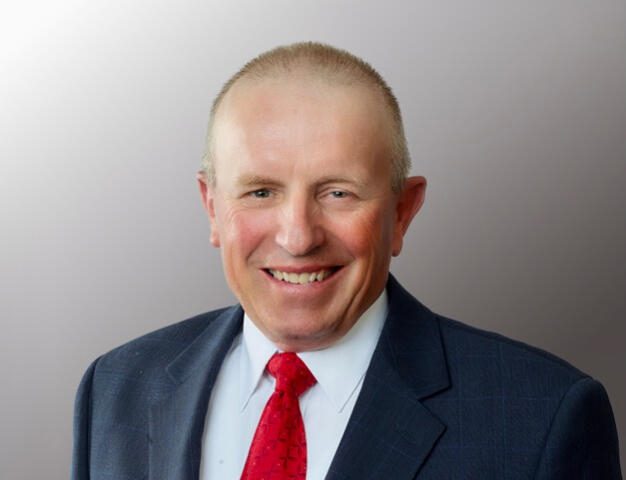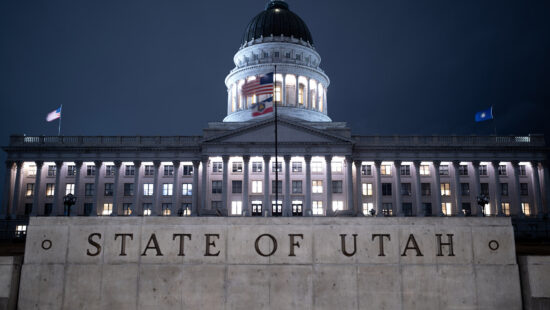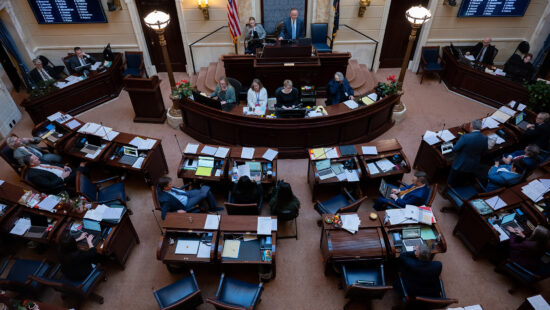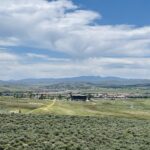Politics
Fire at Will: Utah State Representative Mike Kohler

Utah District 59 Representative Mike Kohler Photo: Mike Kohler
WASATCH COUNTY, Utah – In this informative and reoccurring series, set to be published every Friday, I will engage in thought-provoking discussions with different elected officials and notable figures representing Summit and Wasatch Counties. With each conversation, I aim to delve into the essence of their roles, shedding light on the extensive responsibilities and obligations that come with holding public office.
In this series, we will also discuss their perspectives on the pressing matters that impact their constituents, and the strides they have taken to alleviate these concerns and foster progress within their communities.
The subject of this week’s discussion is Utah State Representative Mike Kohler, who represents all of Wasatch County and parts of Summit County, including Park City, in the state legislature.
Representative Kohler has lived in Wasatch County all his life and was born and raised in Midway. Before entering the political realm, Rep. Kohler worked as a dairy farmer, and he and his brother operated the Heber Valley Cheese farm. While Rep. Kohler sold his stake in the cheese business nearly ten years ago, he still tends his land and livestock in Midway.
In addition to farming, Rep. Kohler had substantial experience working for both state and local government before he was elected to the legislature. Rep. Kohler previously worked as the Wasatch County Commissioner for sixteen years, and after that he worked as the executive director of the state’s Dairy Association, helping fellow dairy farmers with government issues, a position he still holds today.
Since being elected to the state legislature in 2021, Rep. Kohler has sat on several different House committees, including the House Natural Resources, Agriculture, and Environment Committee, the House Political Subdivisions Committee, and the Natural Resources, Agriculture, and Environment Quality Appropriations Subcommittee.
The state legislature is only in session for 45 consecutive days a year, and the amount of committees Rep. Kohler sits on provides him with a jam-packed schedule.
“During sessions, the schedules are pretty tight, we have committees in the morning usually starting at 8 a.m., and we’ll have special meetings either before or after we close at night,” Rep. Kohler explained. “The committees run till noonish, and then we’ll have some caucus meetings, followed by debates and discussion on the floor for a few hours, then more committee meetings in the afternoon.”
The tight schedules are necessary as the legislature only has 45 days each year to discuss proposed legislation, as well as pass bills to the governor.
Rep. Kohler explained what happens behind the scenes of the House Committees, which essentially act as a think-tank for new legislation.
“So let’s say I ran a bill, for a lack of a better example, that everybody had to get rid of their grass,” said Rep. Kohler. “And let’s say it didn’t pass the House. I could then recommend that bill for interim study. Then the committee chairs would get together, and maybe the Agriculture Committee would want to look into it, they pick that bill up and do an in-depth study on that issue. And then if the committee wants to continue, they can run a bill to support it or reintroduce it.”
While the legislature is only in session 45 days a year, Rep. Kohler explains that a lot of work on bills legislators are planning to introduce can occur when the House is not in session.
“We can do a lot of work beforehand so that when the session starts, it’s ready to go. It’s what they call a committee bill, one of the early bills that are studied before the session starts,” Rep. Kohler explained. “It’s an agreed bill, where everyone has studied it, understands it, the committee supports it, and it can go to the floor the first day (of the legislative session).”
Utah’s legislature is very meticulous and attempts to make sure every new bill is thoroughly studied before being signed into law. The legislature is also extremely fiscally responsible and is one of only three states in the country that maintain a budget surplus, despite consistently lowering income taxes and other consumer-related taxes.
“We predict the budget based on estimations and projections of all the smart people, of what the economy is going to do for sales taxes and other things, and we project what the total revenue will be,” Rep. Kohler said. “We have to have a balanced budget, we don’t have a choice. So in the first couple days of the legislature, we take last year’s budget, what we call a base budget, and we pass it. We then take the new money as the system works through, and start prioritizing it to new bills, appropriations, or committees.”
In addition to state proceedings, Rep. Kohler is aware of bills affecting his constituency, specifically the controversial S.B. 84 Housing and Transit Reinvestment Zone Amendments, which Summit County refuted, stating that lawmakers were doing a favor for a specific developer.
“Unfortunately, when they put that bill through, I was watching it and S.B. 84 did not have the bad part,” Rep. Kohler said. “They put though an additional amendment (on S.B. 84) that had the part people are upset about, and I had not read the amendment when the bill came to the floor. I wasn’t paying attention, and that’s my fault. I actually voted for the bill after it got amended to have the bad stuff in it, which was a problem.”
“I know the courts now overruled it, and Dakota Pacific can’t do what they had in mind before,” Rep. Kohler said of S.B. 84. “Lobbyists came in for the owners of Dakota and bent the ears of the right people. Unfortunately, I voted for that, and it was embarrassing, I wanted to vote again, but hopefully the law will give us another chance to redo it and mistakes will stay out of it.”
Rep. Kohler also touched on some controversial bills that have recently been passed surrounding education, including H.B. 374 Sensitive Materials in Schools, as well as H.B. 215 Funding for Teacher Salaries and Optional Education Opportunities.
H.B. 215, commonly known as the School Choice Act, increases teachers’ salaries and compensation as well as provides funding to parents for other educational options, a bill that Rep. Kohler supported and voted for.
“There are a few things on this, number one is a lot of rural schools don’t have other school options. They can homeschool, and some do, but if I have a kid or grandkid who is struggling, there’s got to be other options,” Rep. Kohler explained. “I trust parents, and if parents think there is a problem they should be able to do something about it. It’s just a competition thing that school choice, in my opinion, gives the parents a chance to do something different, but it also incentivizes the school districts to do better.”
As part of H.B. 215, parents who exercise their school-choice right are compensated with a $6,000 scholarship if they decide to homeschool their child or enroll their child in a charter or private school.
“The bill doesn’t just throw the money to the parents and let them do whatever they want, it’s post-qualification, so if you’re a parent, you want your kid in this,” Rep. Kohler said. “You can buy curriculum programs at certain places, all of which have to be approved. You have to spend the money on educational materials to get reimbursed by the state.”
Part of H.B. 215 also entails tax exemptions, as parents who move their child from public to another schooling option will be reimbursed on their taxes.
“You still have to pay the taxes, our schools are mostly funded by income and property taxes,” Rep. Kohler said. “But under these scholarship programs, you get it back. Rather than not pay it, you pay it, but then get it back under qualifications.”
To combat schools that may lose a lot of students and funding, the state will reimburse the school district for every student who leaves the district.
Rep. Kohler also had an opinion on another pertinent issue in Utah schools, the number of books being banned across the state. Rep. Kohler supported H.B. 374 but sees issues with how it is being applied.
“My personal view is that I’m not for a book ban, all you do is make them popular,” Rep. Kohler said about books being banned in Utah. “But I do think that libraries in elementary, middle schools, and high schools should be age appropriate. I think a lot of it is that parent’s committees haven’t had time to work, but I think in some cases, I think political statements were being made.”
“It’s age appropriateness, it’s not a matter of freedom of speech or not,” Rep. Kohler said of sensitive materials in schools. “If you’re 21, you can read whatever you want. And if you’re a parent, and you want your kid to read something, then that’s your choice. But sensitive and pornographic material should not be in libraries.”
Besides social issues, Rep. Kohler also touched on how the state legislature is attempting to implement legislation to incentivize conserving water.
“Money was set aside to look into different conservation methods, and the state-mandated two to three years ago that all new developments had to have meters,” Rep. Kohler explained. “We got started last year, and we’re going to do more this year. We’ll then start billing on usage to incentivize conservation.”
“I farm, and we have different water rights that we use on farms. State law basically says now use it or lose it, so there is no incentive to conserve,” Rep. Kohler said. “That’s got to be fixed. We’ve got two or three laws across the state the last couple of years that are starting to work on that a little bit more, where you can lease it, or you can sell it downstream to somebody else for a couple of years. So we’re changing that.”
Legislation has been passed recently to incentivize farmers to conserve water, including water-banking, which allows farmers to store water and sell it back to other farmers or conservation groups.
“If I have a crop that uses 10 gallons, and I decide to plant a crop that’s five gallons, I can go to you as another farmer or you as a conservation group who wants to buy water for in stream flows,” Rep. Kohler explained. “I can sell that five gallons to you for a season or two seasons or a month. Now we have incentives in government to say, all right, we may not use it ourselves, but we can send it down to the Great Salt Lake.”
Rep. Kohler is proud of some of the legislation that has been passed during his time in the legislature, most notably water conservation incentives, and is considering running for reelection, but has not reached a final decision yet.
“I’ll likely run again, but I haven’t really made a solid decision. I need to talk to my wife, I’m of an age where you know, I can do it or not.”
Appreciate the coverage? Help keep Park City informed.
TownLift is powered by our community. If you value independent, local news that keeps Park City connected and in the know, consider supporting our newsroom.



















